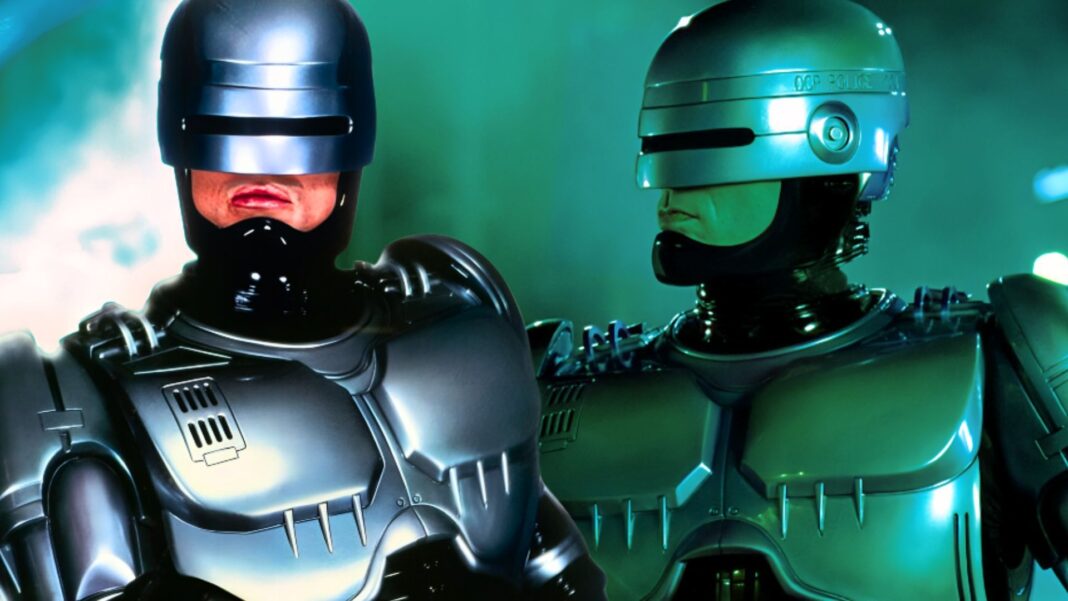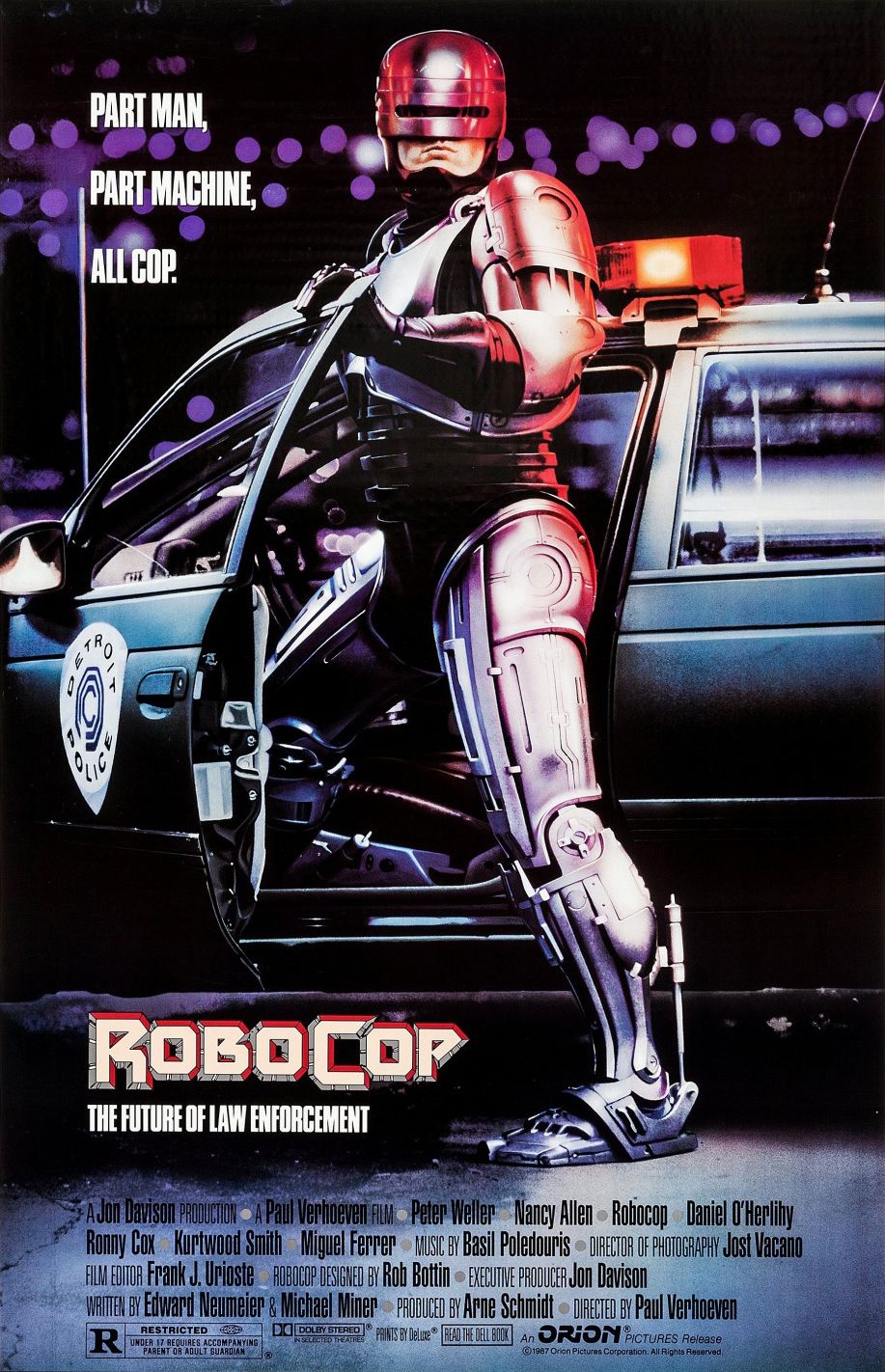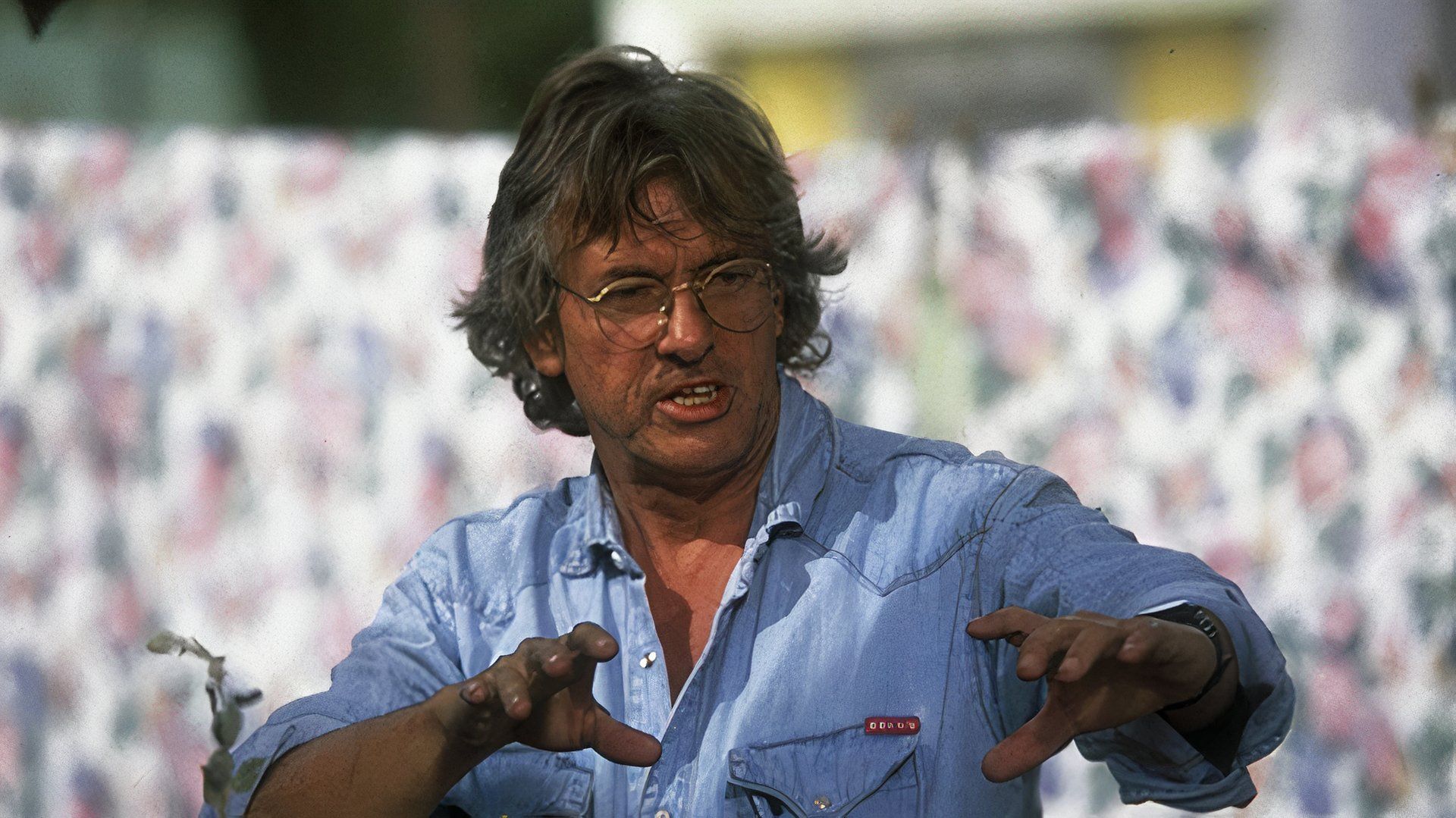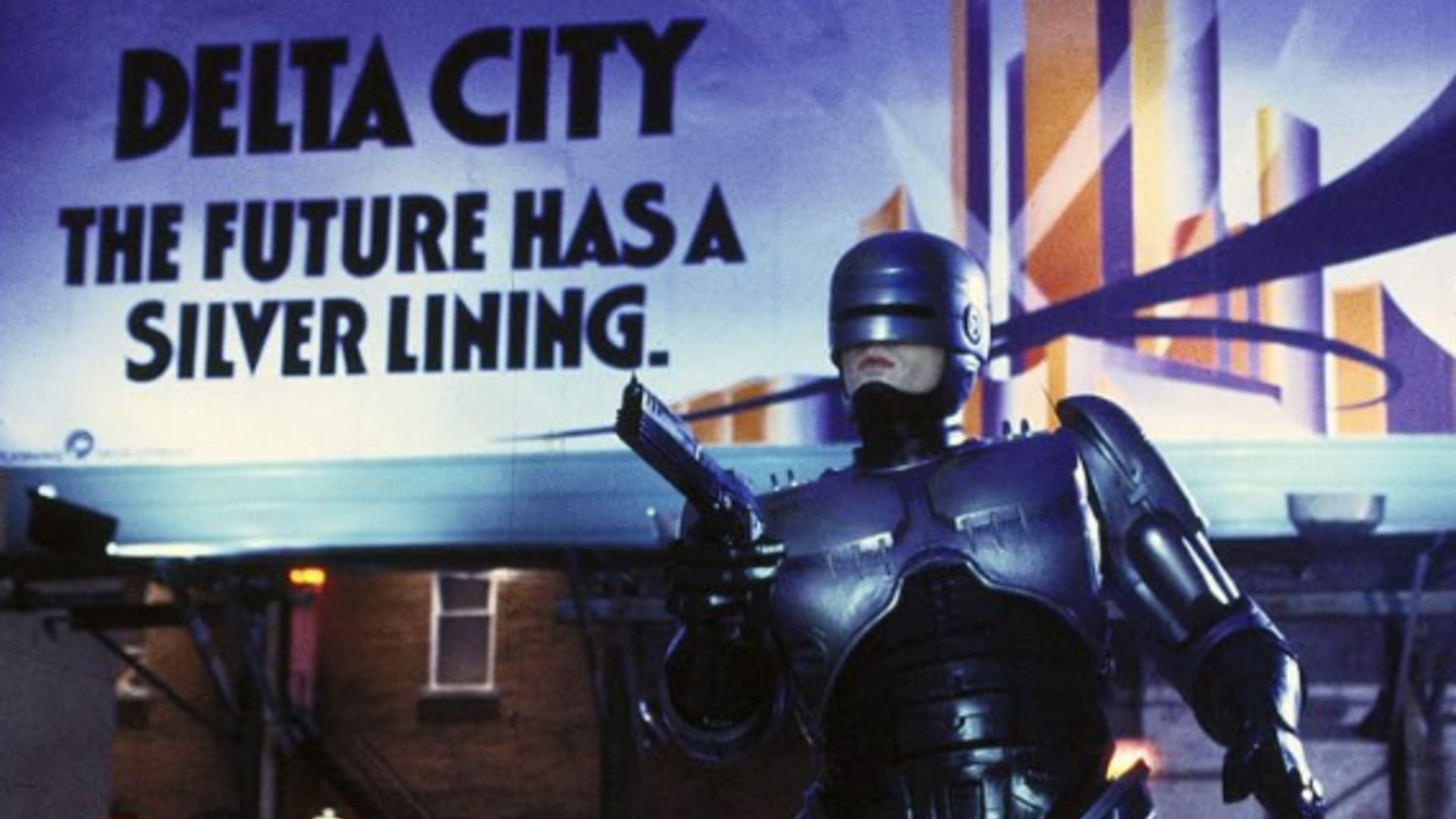The 1987 film RoboCop wasn’t supposed to make over 50 million dollars, spawn two sequels, a toy line, a reboot, or a TV show. It sure as hell wasn’t expected to affect cinematic discourse. What happens when you get an art-house director who despises science fiction and action movies; a producer who made a film so controversial it was banned from theaters; a dyslexic actor unable to audition formally; an actress who nobody respected; and no-name writers to write a script that’s the joke of Hollywood? A satirical, R-rated, sci-fi-blockbuster masterpiece. The pieces fell into place despite the contradictions, the actors, director, studio, and effects crew venturing down uncharted territory out of pure stubbornness.
On paper, this project was a flop. Director Paul Verhoeven voiced his contempt for the script, threatening to remove all trace of comedy, and throwing tantrums when the crew failed to meet his expectations. Luckily, the film came together regardless of the myriad red flags. The concept works best as a one-and-done film character study, with further installments dragging out the character arc of Murphy, which was already exhausted. This perfect formula of low and highbrow was rejected in the sequels, the first RoboCop standing out all the more as an anomaly with each passing failed movie update.
RoboCop‘s longevity in the zeitgeist speaks less to the acumen of the execs picking scripts than it does to the ragtag collection of talent they lucked into hiring. Make no mistake, no one in the industry grasped the potential of a clever action film, equal parts Mad Magazine and Rambo, slyly inserting sarcastic digs at consumerism, the military-industrial complex, the shallowness of pop culture, and unchecked corporate domination of modern life. In Orion’s scheme, this was about money, and nothing else. Audiences just wanted to giggle at criminals getting shot in the privates or exploding into a burst of goo. Without compromising his broader societal critique or the ever-vital body horror, Verhoeven obliged them.
The “F***ing Robot Movie” That Was the Punching Bag of Hollywood
Orion Pictures greenlit the movie, viewing it as their very own Terminator, assigning a fairly modest budget for the action spectacular. They acquired the script from unknown screenwriter Michael Miner, thanks to the encouragement of producer Jon Davison. Some script changes were made by Edward Neumeier, who joined as a co-writer.
Orion’s robot adventure ran into snags in pre-production, reeking of B-movie schlock. One of the more bizarre names that popped up for the directing slot was Dutch avant-garde filmmaker Verhoeven, who, to this point, had made only bleak, controversial movies in Europe. As desperate as he was, Verhoeven scoffed at the premise, and so did most of the industry. In Science Fiction Film Directors, Vol. II, Davison remarked the taint scared away many famous names:
“There was immediate disinterest. Nobody wanted their client to be in it except people who hadn’t worked in a long time. For every director who didn’t want to direct
RoboCop
, there were 100 actors who didn’t want to play the part.”
However, Verhoeven had a change of heart, detecting deeper subtext he could exploit. Peter Weller eyed the role of Alex Murphy/RoboCop, up for another role in a more prestigious franchise. Unable to read scripts due to his dyslexia, Weller instead shuffled around like a break dancer to imitate a robot’s gait, which evidently impressed Verhoeven. Confronted with an ultimatum, Weller was told to stop wasting his time with the cyborg-cop picture by producer Dino De Laurentiis, who had all but guaranteed him a job in the King Kong sequel, King Kong Lives.
Weller was more interested in collaborating with the temperamental Dutchman, infuriating De Laurentiis and burning that bridge. “How much money you want not to do this f***ing robot movie?” Weller remembered the Italian movie-mogul uttering, per Entertainment Weekly. Stephanie Zimbalist of Remington Steele signed on for the role of Officer Anne Lewis, but it would go to Nancy Allen. Her reputation at the time was as a ditzy horror actress who only succeeded due to Hollywood nepotism, appearing in several of her husband’s films. This would be the least sexy role of her life, the film not even able to bank on that marketing angle. Orion had bigger things to worry about than the obscure actors, the budget ballooning as the movie went over schedule.
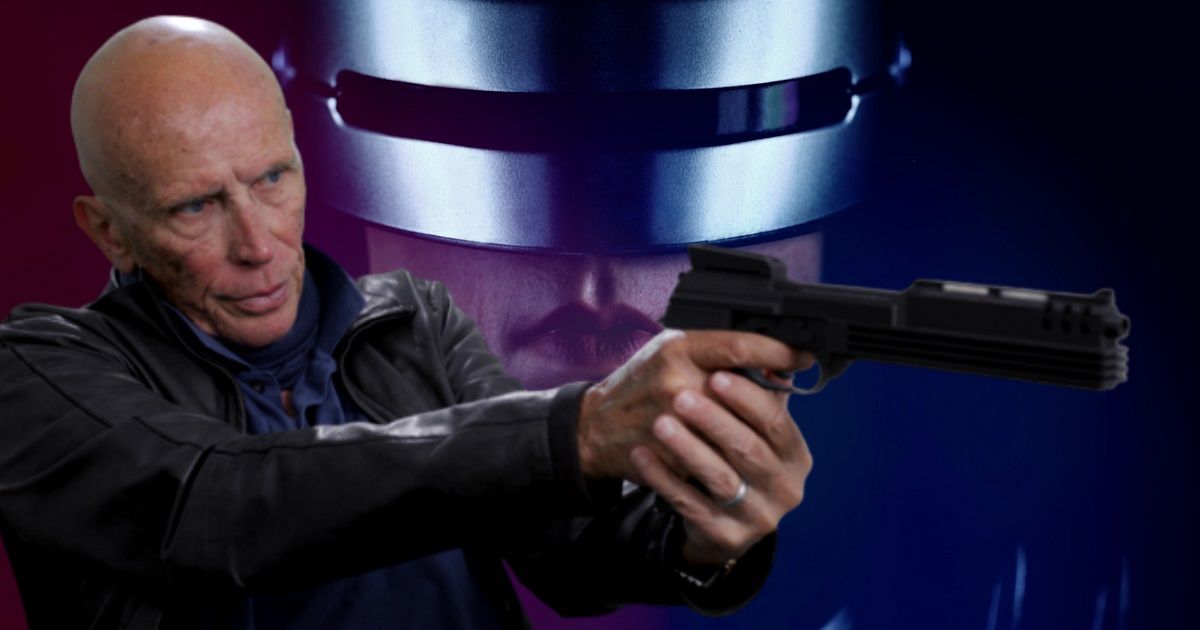
Related
Peter Weller Looks Back on the ’80s Classic in Robodoc: The Creation of RobCcop Exclusive Clip
Peter Weller and the RoboCop crew look back on the emotional moments in the ’80s action classic in clip from Robodoc: The Creation of RoboCop.
Paul Verhoeven, the Boss From Hell
The sunny climate did little to lighten up the snobbish director. Unhappy with effects technician Rob Bottin’s early designs, he destroyed the film’s models with a spatula. Disgusted with the script, Verhoeven also ordered drastic rewrites to alter the satirical elements, only to change his mind, and revert to the sardonic vibe of the Miner-Neumeier story.
The culture clash was equally problematic, with the nuances of American culture lost on him. Verhoeven was not what you’d call street-smart. The “Bitches leave” line has gone down as a fan-favorite quote from the film, though Verhoeven shot that segment without understanding the humor in a line that sounds like it came straight out of a blaxploitation movie. Neither he nor his German cameraman understood that the word “bitches” was a derogatory term in the English language, both using it casually on set, the cast laughing at the director’s faux pas behind his back.
The cast and crew eventually did rally behind the prickly director, pouring their hearts into a film that to most outsiders looked like a cheesy piece of junk. Even Bottin bore no grudges, reuniting with the director for 1990’s Total Recall. Filmed in real locations rather than sets, Verhoeven managed to create a rare film that delivered something for everyone, showcasing a man struggling with his emotions, a strong female protagonist, horror, cheap thrills, funny one-liners, and a solid drama. The trouble wasn’t over yet though. Up next came the MPAA rating board …
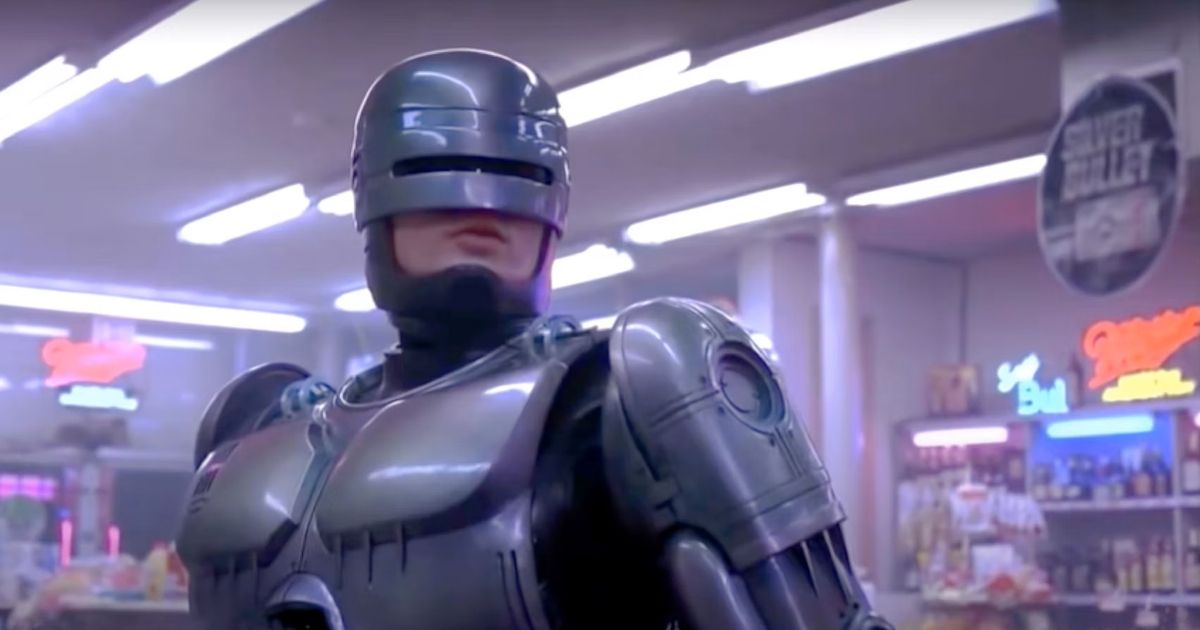
Related
Gran Turismo’s Neill Blomkamp Shares Details of HIs Abandoned RoboCop Sequel, RoboCop Returns.
Neill Blomkamp shared details on his abandoned RoboCop sequel, which would have been called RoboCop Returns.
The Vain Quest to Recapture Lightning in a Bottle
It’s important to keep in mind how shocking the film was at the time. Its then-excessive death and dismemberment garnered it an X-rating, later lowered thanks to some cuts that excised the more gratuitous acts of violence. Their backs against the wall, Verhoeven pulled off a huge coup, the strange amalgamation of different sensibilities and ideas overcoming its financially burdensome R-rating to make a tidy profit. That wouldn’t last.
Subsequent films — Irvin Kershner and Fred Dekker taking over in ’90 and ’93 — botched the execution, as RoboCop 2– 3 devolved into precisely the kind of soulless, forgettable, safe, corporate popcorn movie experience that Neumeier feared. Dekker’s outing ground down the final edges of Neumeier and Miner’s grisly ode to pulp comics, the last entry in the trilogy being a PG-13 movie that RoboCop fans by and large refuse to acknowledge.
Orion was eager to launch a RoboCop franchise, despite there being no real path to elaborate on the Murphy character. Regaining his humanity, and mopping up the unsavory elements of OCP company, RoboCop was at a dead end after ’87. Allen — lingering on as Lewis in the final movie in the original trilogy after Weller bailed — expressed appreciation for Verhoeven’s willingness to explore the comedic dimensions of the boilerplate cyborg plot as he cautiously learned to respect the options science fiction afforded.
It was a pillar of the film’s success, and one lacking in the second movie, which she found bore none of the first film’s charm or wit. Despite clearly being the wrong hire for the director gig, without Paul Verhoeven, there is no RoboCop. Perhaps it should stay that way, fluke or not. Stream on Max.
